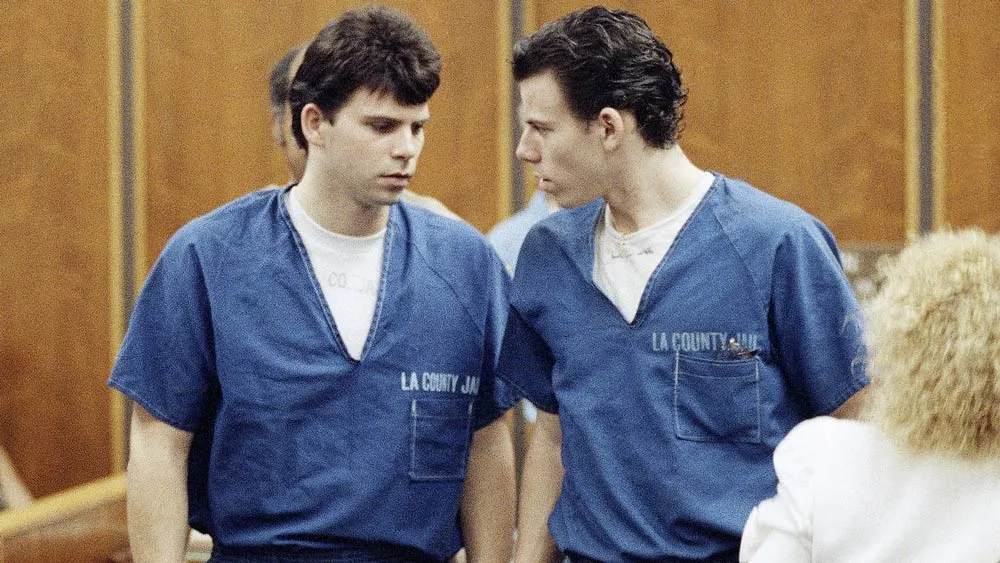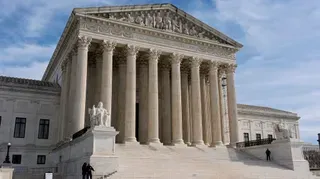October 29, 2008
Prop 8 fight shifts to schools
Michael Wood READ TIME: 5 MIN.
SAN FRANCISCO - A girl in pigtails bounds into the kitchen after school and asks her mother to guess what she learned that day. "I learned how a prince married a prince, and I can marry a princess," she exclaims to her mortified mom.
This television advertisement for a ballot initiative that would ban same-sex marriage in California urges voters to "protect children" by approving the measure.
There's not a word about education in Proposition 8, but what public schools will be required to teach about same-sex marriage has emerged as the central issue in the campaign.
The measure's supporters warn that teachers will be forced to tell young children about gay marriage if the measure fails on Nov. 4. Opponents of the measure say that's deceptive because schools already are required to teach tolerance of gays and lesbians, and the ballot measure won't change that.
"I've seen the spots on the TV, and [legalized gay marriage] just isn't going to require any kind of teaching of personal relationships or lifestyle," said state Superintendent of Public Instruction Jack O'Connell, who has joined the state's largest teacher's union in opposing the measure. "That's just not an accurate statement or portrayal."
To combat anti-gay discrimination, California schools have addressed topics such as gay households, homophobia and sexual orientation for years, well before the state Supreme Court made same-sex marriage legal this year. But how school districts choose to deliver that instruction is decided locally instead of mandated by the state, according to educators and legal experts.
Supporters of Proposition 8 - which would overrule the state Supreme Court decision - received fodder for their claims earlier this month.
With parental permission, a public charter school took 18 first-graders on a field trip to San Francisco City Hall where their teacher and her female partner had just been wed by Mayor Gavin Newsom.
"The other side's argument is [Prop. 8] has nothing to do with education. Our argument is this has everything to do with education," said Chip White, a Proposition 8 spokesman. "It's already happening."
An estimated 52,000 children are being raised by two mothers or two fathers in California, which is one of 12 states with comprehensive anti-bullying laws that apply to gay students and children with unconventional families.
Some elementary schools have acquired books depicting families with same-sex couples, middle schools have taught students not to use anti-gay slurs, and high schools have sanctioned gay-straight alliance clubs. And school districts have been found liable for not taking steps to prevent anti-gay harassment.
The mother-daughter campaign ad refers to "King and King," a children's book about two princes marrying that became the subject of a lawsuit in Massachusetts, the first U.S. state to legalize same-sex marriage. The parents of a second-grader sued after the book was read in class, but the school district successfully argued that advance notice of the reading was not required because the book was not part of the sex education curriculum.
Critics of Proposition 8 point out that many schools in California already use "King and King" and other books to discourage discrimination against gay students or children with gay parents.
"The education code already has a high expectation that school districts are going to create an environment where respect for human dignity and acceptance of differences, including sexual orientation, are promoted," said Laura Schulkind, a San Francisco lawyer who represents school districts across California. "I don't see how the legalization of gay marriage or the passage of Prop. 8 changes that obligation."
The need for such awareness training was brought home to California in February, when a 15-year-old who sometimes wore feminine clothing and talked about being gay was shot to death at his Oxnard junior high school. A classmate has pleaded not guilty to murder and hate-crime charges.
"We have to address harassment and bullying, and there is no way to do that in America without talking about gay people," said Debra Chasnoff, an Oscar-winning filmmaker who has made four documentaries to address anti-gay harassment in schools.
The opposing sides have debated what, if anything, schools must teach about marriage now that gays have the right to wed.
The state education code specifies that marriage should be discussed in sex education classes. But school districts are not required to hold the classes and parents can have their children excused if the course conflicts with their moral values. The vast majority of California districts do not teach sex ed.
"Current state law does not require school districts to teach anything about marriage or same-sex marriage," Sacramento County Superior Court Judge Timothy Frawley wrote in ruling on Proposition 8's ballot arguments. He added, however, that the state "may require" such instruction in the future.
Robin Sinks, the health education specialist for the 90,000-student Long Beach Unified School District, does not think what is taught in California schools will change much regardless of what happens on Election Day.
Teachers in large, diverse districts now strive to make their sex education lessons relevant to straight, gay and bisexual students, Sinks said. "We're talking about really refraining from using things like, husband-wife, boyfriend-girlfriend, those kind of things, and just say 'partner,'" she said.
Gary Marksbury, a history teacher at Lakewood High School in Long Beach, plans to let his students debate Proposition 8 during a mock election, but he is so strongly opposed to gay marriage that he donated $1,000 to support the measure.
Marksbury said California should give parents more latitude to pull their children out of courses that offend their religious beliefs. "In today's world," he said, said, "it seems like tolerance is a one-way street for some people, so if you don't like the idea of same-gender marriage you are immediately labeled a bigot."
California gives local districts authority - and in the case of sex education, the imperative - to adopt curricula that reflect community mores while meeting certain standards. So what students hear about homosexuality in Long Beach schools may be different from what they learn in the more conservative Central Valley.
Wendy Robertson, a teacher at Forest Park Elementary School in Fremont, is not worried about having to explain same-sex marriage to her pupils. During her 17 years teaching kindergarten, Robertson says no one has ever told her to talk about any kind of marriage with her pupils.
If one of her pupils asked if he could marry his best buddy, Robertson said her answer would be age-appropriate.
"I would say, 'Wait and see, you have to be grown-up first,'" she said.
Michael Wood is a contributor and Editorial Assistant for EDGE Publications.







